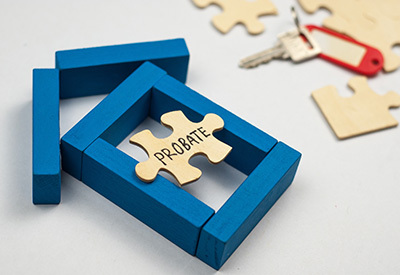The concept of "snowbirds" has become a popular lifestyle choice for many retirees seeking to enjoy the best of different climates and communities throughout the year. Typically, these individuals spend the warmer months in cooler northern states and then migrate to sunnier southern regions as winter sets in. This pattern of living, while offering an enviable balance of seasonal experiences, presents unique and often overlooked challenges in the realm of estate planning.
For snowbird couples, who divide their time living between two distinct states, the complexity of estate planning is compounded. Each state in the U.S. has its own set of laws and regulations governing estate planning, including wills, trusts, powers of attorney and health care directives. This variation in legal frameworks means that what is legally binding and effective in one state may not necessarily hold the same weight in another. As a result, snowbird couples must approach their estate planning with a keen eye for detail and an understanding of the legal intricacies in both of their resident states.
Having homes in two states not only affects how estate plans are crafted but also how they are executed. Issues such as property ownership, tax liabilities and health care directives can have different implications depending on the state laws. For instance, a will drafted and validated in a northern home state may encounter hurdles during the probate process in the southern state if it doesn’t meet the latter’s legal criteria. Similarly, a power of attorney established for health care decisions in one state may not be immediately recognized in another, potentially leading to critical delays or disputes at crucial moments.
Furthermore, the snowbird lifestyle can impact the couple's financial planning, particularly in terms of tax considerations. Different states have varying tax structures, including differences in estate taxes, inheritance taxes and income taxes, which can significantly influence a couple’s estate planning strategy.
Effective estate planning for snowbirds demands a comprehensive approach that accommodates the unique legal and fiscal landscapes of their chosen states, ensuring peace of mind as they enjoy their dual residency.
What are the estate planning implications of living in two states?
Dual-state residency, a common scenario for snowbirds, involves complex legal considerations integral to estate planning. This situation arises when individuals establish connections, typically through property ownership and prolonged stays, in more than one state. For snowbird couples, this often translates to owning a primary residence in a northern state and a secondary home in a southern state, where they reside for part of the year. Navigating the legal landscapes of two different states adds a layer of complexity to the estate planning process.
The implications of dual-state residency in estate planning are multifaceted:

- Probate considerations. One of the significant challenges is how each state handles the probate process. Probate is the legal procedure in which a last will and testament is validated. If a will is deemed valid in one state but not in another, it can lead to legal complications and potentially protracted probate proceedings.
- Trust laws. Trusts are often used in estate planning to manage and protect assets. However, the legal recognition and treatment of trusts can vary. Some states may have favorable laws for certain types of trusts, impacting how assets are managed and protected from estate taxes.
- Health care directives and powers of attorney. These documents are crucial for decision-making in cases of incapacity. However, a directive or power of attorney that is legally binding in one state might not automatically be recognized in another, potentially leading to disputes or confusion in critical health care decisions.
- Property and real estate laws. Owning property in different states requires an understanding of each state's property laws, especially concerning estate taxes and property transfer upon death. In some cases, property in different states may be subject to different probate processes.
- Residency for tax purposes. Determining which state is considered the primary residence for tax purposes is another crucial aspect. State residency can affect state income tax obligations and potential exposure to state estate or inheritance taxes.
Therefore, for snowbird couples, it’s imperative to have a clear understanding of the legal requirements and implications in both states where they reside. This knowledge is vital to ensure that their estate plans are not only tailored to fit their personal wishes and circumstances but are also compliant and effective under the laws of both states. Navigating these legal waters can be complex, often requiring the guidance of experienced estate planning professionals who are well-versed in the laws of both states.
The need for estate planning documents in both states
For snowbird couples who split their time between two states, the decision to maintain separate estate planning documents for each state is a critical one. This decision must be carefully weighed, considering the distinct advantages and potential drawbacks.
Here are some of the advantages of having separate estate documents in each state:

- Compliance with state laws. Each state has its own legal requirements for estate planning documents. By having separate documents for each state, snowbird couples can ensure that their estate plans comply with the specific legal nuances and statutes of both states. This compliance is crucial for the validity and enforceability of wills, trusts, powers of attorney and health care directives.
- Smoother probate process. Probate laws differ from state to state. Having estate documents that are tailored to each state's probate process can lead to a more streamlined and efficient administration of the estate. This can be particularly beneficial in reducing the time and complexity involved in settling an estate that spans multiple jurisdictions.
- Avoidance of legal ambiguities. Separate documents can help prevent ambiguities that might arise from trying to use a single set of documents across different legal systems. This clarity can be particularly important in situations involving complex assets or property laws.
Meanwhile, there are some drawbacks of having separate estate documents in each state:
- Increased complexity. Managing two sets of estate planning documents can add a layer of complexity to the estate planning process. This might include the need to ensure that the provisions in one state's documents do not conflict with those in the other state's documents, which can be a challenging task.
- Potential for conflicting directives. There is a risk that separate documents could contain conflicting instructions or directives. For example, differences in how property is bequeathed in each set of documents could lead to disputes among beneficiaries or legal complications during the probate process.
- Higher costs. Maintaining separate estate plans in two states often means incurring additional legal fees. The need for ongoing legal counsel and potential revisions to keep both sets of documents current and compliant with changing laws can result in significant legal expenses.
- Document maintenance. Keeping multiple sets of estate planning documents updated and in sync with each other can be burdensome. It requires diligent attention to ensure that any changes, like updates to beneficiaries or asset distributions, are consistently reflected across all documents.
For snowbird couples, the decision to maintain separate estate planning documents hinges on a careful balance between the need for compliance and legal efficacy and the desire to minimize complexity and costs. Couples must consider the nature of their assets, their family dynamics and their personal preferences when determining the best approach for their unique situation.
Key estate planning documents to consider
For snowbird couples who live part of the year in one state and the remainder in another, certain key estate planning documents are essential to ensure their wishes are honored in both locations. Understanding the nuances of these documents and their cross-state validity is crucial.

- Wills. A will is a fundamental document in estate planning that dictates how your assets will be distributed after death. The requirements for a valid will can vary significantly between states. These variations might include differences in witnessing procedures, notarization or specific clauses required by state law. It’s important to ensure that a will is drafted or reviewed by an attorney familiar with the laws of both states to prevent any issues in the probate process. In some cases, having two separate wills, one for each state, may be advisable to address state-specific assets or regulations.
- Trusts. Trusts are used for managing assets both during the grantor’s lifetime and after their passing. They can be particularly useful for property management across state lines. State laws governing trusts can differ, especially concerning irrevocable trusts and their tax implications. Therefore, understanding how each state treats trusts is vital to avoid unintended consequences. Snowbird couples should consider whether to establish separate trusts in each state or a single trust that is properly structured to be effective under the laws of both states.
- Powers of attorney. Powers of attorney allow individuals to appoint someone to make decisions on their behalf, should they become unable to do so. Because powers of attorney are governed by state law, a document that is legally sound in one state might not be recognized in another. It is often recommended to have separate powers of attorney for each state, particularly for financial matters, to ensure that the appointed agent can act effectively regardless of the state in which they need to operate.
- Health care directives. Health care directives, including living wills and health care proxies, are critical for outlining wishes regarding medical treatment and appointing someone to make health care decisions if the individual is incapacitated. As with powers of attorney, health care directives are subject to state-specific laws. A directive that is compliant in one state may not meet the legal criteria in another. Snowbird couples should ensure their health care directives are valid in both states. In some instances, having two separate health care directives, each complying with the respective state’s laws, may be the most effective approach.
Tax considerations for snowbird couples
For snowbird couples who divide their time between two states, navigating the tax implications of dual-state residency is a critical aspect of estate planning. The complexities of state tax laws can significantly affect financial planning and require strategic considerations to optimize tax efficiencies.
Understanding the income tax laws in both states is essential, as some states have higher income tax rates than others and some do not levy state income tax at all.
Determining which state is considered the primary residence for tax purposes is pivotal. Primary residency often dictates where the couple will file state income taxes. This decision can have a substantial impact on the couple's overall tax liability, especially if one state has a significantly higher income tax rate.
Snowbird couples need to be aware of residency rules in each state to ensure they are compliant with state tax laws and to avoid being taxed as residents in both states.
Estate and inheritance tax laws vary widely from state to state. Some states impose estate taxes, some impose inheritance taxes, and others impose neither.
Understanding the thresholds for estate and inheritance taxes in each state is crucial. For instance, a couple might be exempt from estate taxes in one state but subject to them in another, depending on the size of their estate and the specific state laws.
Planning where to hold certain assets can help minimize exposure to these taxes. For example, holding a larger portion of the estate in the state with more favorable estate tax laws could be beneficial.
Setting up trusts can be an effective way to manage tax burdens for snowbird couples. Trusts can help in legally relocating assets to a more tax-favorable state.
Certain types of trusts, such as irrevocable trusts, can be used to remove assets from the couple’s taxable estate in their home state, potentially reducing estate tax liabilities.
One strategy to minimize tax liabilities is to establish legal residency in the state with more favorable tax laws. This decision, however, is not just about spending more time in one state but also involves other factors such as where the couple votes, holds driver’s licenses and where their primary banking activities occur.
The implications of changing residency for tax purposes should be carefully evaluated, as it can affect not only income taxes but also estate and inheritance taxes.
Real estate and property considerations

For snowbird couples who own property in multiple states, their estate planning process involves navigating a complex landscape of real estate laws and regulations. The ownership and management of these properties play a crucial role in their overall estate strategy.
Each state has its own set of property tax laws, which can significantly impact the overall tax burden on the estate. Snowbirds must be aware of the property tax rates, assessment procedures and any exemptions or relief programs available in each state where they own property.
Differences in tax rates between states can be substantial, thus affecting decisions about where to hold larger assets or investments.
Many states offer homestead exemptions, which can provide significant property tax relief and protection from creditors for the primary residence. The criteria and benefits of homestead exemptions vary from state to state.
Determining which property qualifies as the primary residence for the homestead exemption is an important decision. This not only impacts property taxes but can also have implications for asset protection and estate planning.
How a property is titled can influence its management during the owner’s lifetime and its disposition upon death. Different titling options include sole ownership, joint tenancy with rights of survivorship, tenancy by the entirety and community property.
The titling of property affects probate processes, transfer of ownership upon death and sometimes exposure to estate or inheritance taxes.
Titling strategies should be consistent with the overall estate planning objectives and consider the legal implications in each state.
Conclusion
Effective estate planning for snowbird couples requires a proactive and comprehensive approach. The unique challenges of dual-state residency necessitate careful consideration of legal, tax, and property issues. By working with skilled legal professionals and regularly reviewing their estate plans, snowbird couples can ensure their estate planning strategies align with their lifestyle and are adaptable to the diverse legal landscapes of their chosen states.



